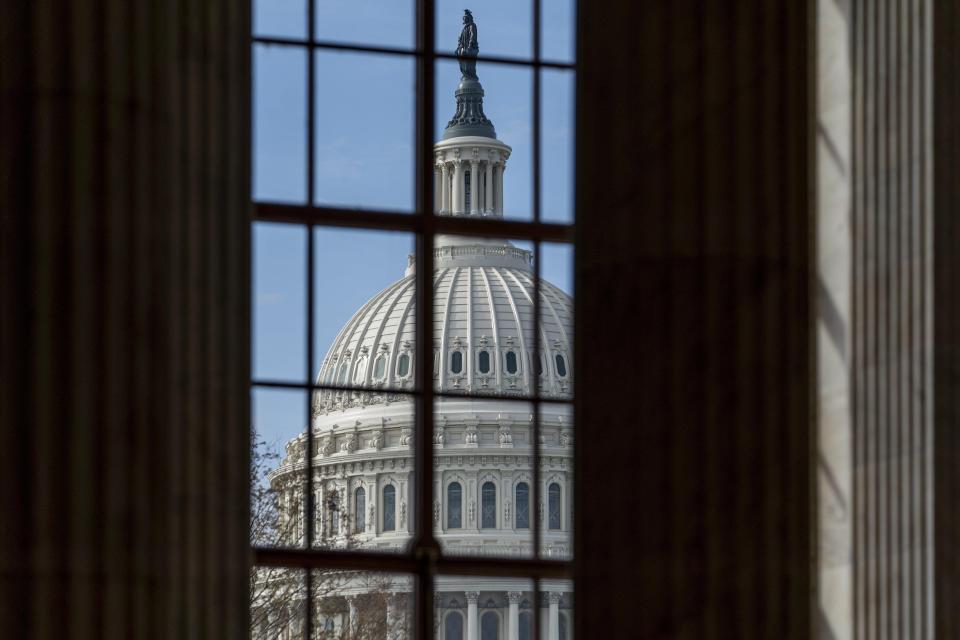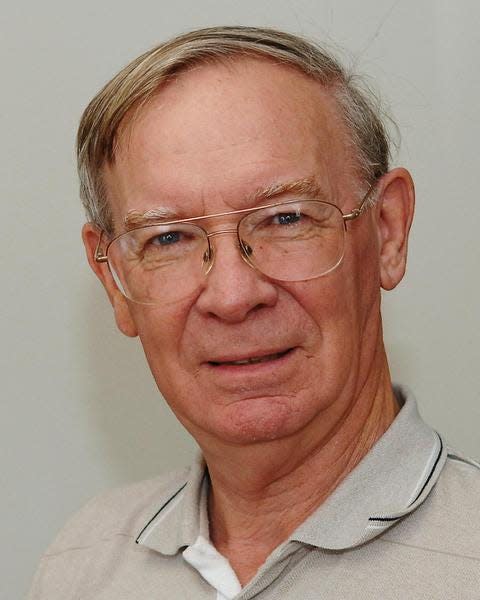How 'Gas' Addicks almost bought one of Delaware's US Senate seats
- Oops!Something went wrong.Please try again later.
John Edward Addicks, with no political experience but with boundless ego, bags of cash and no morals to restrain him, wanted to be one of Delaware’s two U. S. senators.
On Dec. 8, 1888, the Wilmington Evening Journal published an anonymous letter that claimed, “The long and short of it is that a gentleman named J. Edwards Addicks who resides at Claymont, Del., does business in Philadelphia, and hails from Boston, would like to be [a] United States Senator, and if this repeatedly confirmed rumor can he credited, he is willing to pay for it.”
Born in 1849 in Philadelphia, Addicks thrived in the unregulated world of 19th century capitalism. Addicks built his fortune as a speculator, promoter and organizer of gas companies that earned him a fortune and the nickname “Gas” Addicks. At that time, the American political system was ruled by party hacks, insiders, and above all, money.

The New York Times noted on July 13, 1902, “[Addicks] conceived the idea of buying a seat in what was and is in his eyes the finest club in the world. If he had then or has now any idea of entering the Senate as an actual legislaor and deliberator, he has kept that idea secret.”
Paying the poll tax for poor one of his schemes
In his bid for elective office, Addicks was aided by peculiarities in Delaware’s voting regulations that created fertile ground for the millionaire and his money. Citizens who had delinquent debts could be barred from voting, and Delaware had a poll tax that discouraged many of the poor from participating in the electoral process.
In an unabashed, but legal, effort to buy votes, Addicks satisfied the creditors for debtors, and paid the poll tax for the poor. To ensure that he got what he paid for, Addicks hired workers to “assist” his newly-bought supporters in the voting booth.
DELAWARE HISTORY: How the DNA from 17th-century graves unearthed near Rehoboth may rewrite Delaware history
At the time, United States senators were elected by the state legislatures; and he used his money to support Republican legislators in the Delaware General Assembly, with the understanding that they would vote for him for the U. S. Senate.
According to an expose written by George Kennan and published by the Wilmington Evening Journal in 1903, Addicks “went down into Sussex County … with a satchel containing ten thousand dollars or more in cash” which he distributed to politicians for “campaign expenses.”
“In his eyes nothing was too sacred to be corrupted politically,” the Evening Journal editorialized on Aug. 8, 1919. “He bought preachers and their congregations and did things in politics that never before bad been dreamed of, much less attempted, in Delaware.” A political opponent once called him a moral idiot.
A claim that 'we've won!', but a premature one

At a dinner in 1894, when it appeared that he was on verge of victory, the erstwhile politician boasted, “Well, boys, we've won! ... I've bought it; I’ve paid for it: and I'm going to have It! It has cost me one hundred and forty thousand dollars!” The claim was premature. He lost the election, but his quest for the Senate continued.
Addicks’ candidacy for the Senate divided the Delaware legislature into three factions, the pro-Addicks Republicans, the anti-Addicks Republicans, and the Democrats. For more than a decade, no candidate was able to cobble together a majority necessary for election to the U.S. Senate. For several years, one of Delaware’s two seats in the Senate remained vacant; and between 1901 and 1903, the state had no U.S. Senators.
Addicks’ effort to buy his way into the United States Senate ended when his business empire collapsed. Addicks fled Delaware, and, in 1919, died in Philadelphia.
DELAWARE HISTORY: A new book sheds light on historic Odessa, Colonial America
The Evening Journal reported on Aug. 11, 1919, “None of the former political lieutenants of J. Edward Addicks who now are enjoying prosperity while he died practically penniless, attended his funeral.”
Principal sources
Evening Journal, Dec. 8, 1888; Feb. 11, 1903; Feb. 11, 1903; Feb. 19, 1903; Aug. 8, 1919; Aug. 11, 1919.
New York Times, July 13, 1902.
Milford Chronicle, Aug. 15, 1919.
Smyrna Times, Aug. 13, 1919.
Richard B. Carter, Clearing New Ground, The Life of John G. Townsend Jr., Wilmington, Delaware Heritage Press, 2001, pp. 71-79, 151-153.
This article originally appeared on Salisbury Daily Times: 'Gas' Addicks wanted to be US senator — and was willing to pay for it

